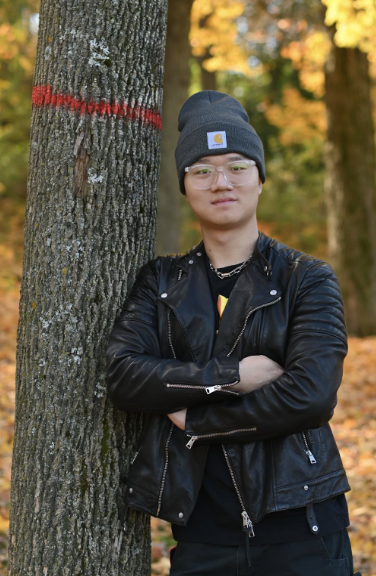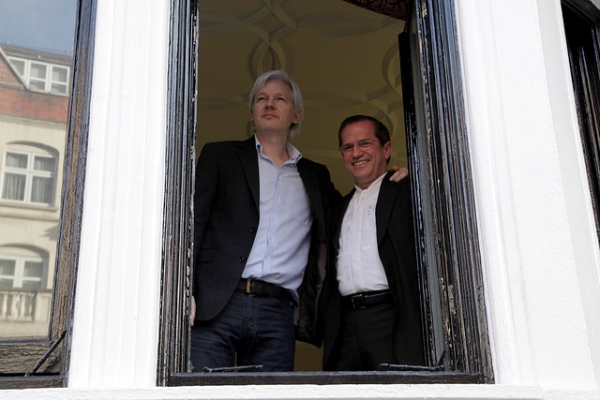A tumultuous legal saga came to a surprisingly satisfying conclusion as Julian Assange, founder of WikiLeaks, stepped outside into the searing heat of Saipan, an exotic Pacific Island under US jurisdiction. The 52-year-old Assange secured his freedom by pleading guilty to obtaining and publishing confidential information regarding the US military in exchange for a five-year prison sentence, which he had already served in the UK. Since Assange struck a plea deal with the US government, he was subsequently released from Belmarsh Prison just on the outskirts of London and boarded a flight to Saipan to enter his plea officially. Assange’s wife, Stella Assange, told reporters at a news conference, “Julian plans to swim in an ocean every day. He plans to sleep in a real bed. He plans to taste real food, and he plans to enjoy his freedom.”
Pleading guilty to numerous accounts of espionage was an unfortunate necessity for Assange to secure his release due to the US State Department’s determination to convict him over several leaks. However, the entire case involving Julian Assange is a grim reminder of the fragility of free speech and raises questions about the extent of journalistic freedom, especially for investigative journalists. Although Assange was charged with espionage, it was not for spying for another government but for doing what journalists are supposed to do: publishing classified information that the US government did not want the public to see. That is precisely why he started Wikileaks in the first place— to ensure that whistleblowers and others who provide sensitive information to journalists remain anonymous and protected.
Julian Assange was born in Townsville, Australia, to Christine Anne Hawkins, a visual artist and John Shipton, a construction worker, but they were already divorced when their son was born. Assange ended up being raised by Christine and her new husband: Brett Assange, whom Julian considers his father, hence why Julian took his last name. Julian Assange moved around a lot during his childhood, living in over thirty towns throughout Australia. Little did his parents know that their son, who had a somewhat troublesome childhood, would become a major adversary to nearly every state leader on the globe.
Assange grew up to become a skilled hacker and IT wizard at the tender age of 16. He was also a member of a group of hackers that dubbed themselves the “International Subversives.” By 1991, Assange was probably the most adept hacker in Australia. The highly specialized hacking skills he picked up during his adolescence allowed the International Subversives to access MILNET, the US military’s confidential data network. Assange discovered a backdoor and was able to control it for two years, demonstrating that before the founding of WikiLeaks, Assange was already on the CIA’s radar for illegally tapping into prohibited databases. In 1994, Assange was charged with over 25 counts of hacking and other related crimes, but the judge ruled that he was primarily motivated out of curiosity rather than malice and got off pretty much scot-free.
Julian Assange founded WikiLeaks in 2006, a whistleblowing platform designed to obtain and circulate classified documents and data sets from anonymous sources. Determined to continue his work as a hacker and now with a strong conviction to uphold the unfiltered flow of information and most importantly, enlightenment, Assange pursued his mission with unbridled intensity. According to an interview conducted by Der Spiegel, when asked whether or not the purpose of transparency was too idealistic, Assange replied: “To be honest, I don’t like the word transparency; cold dead glass is transparent. I prefer education and understanding, which are more human.”
Regardless of semantics, WikiLeaks ensures that the leaker of the sensitive information in question remains anonymous and feels safe to leak crucial confidential information to the public. WikiLeaks earned its renown—or some may say notoriety—through some of the biggest whistleblowing cases of the 21st century. These leaks exposed a corruption case in Kenya, the rampant corruption within the Tunisian government that sparked the Arab Spring, and cases of civil unrest in Tibet.
But the leaks concerning the US government, particularly the actions of the American military in Iraq and Afghanistan, are what truly made Assange public enemy number one. The most notorious leak happened back in April 2010, when former US intelligence analyst Chelsea Manning Manning (formerly Bradley Manning), leaked thousands of confidential military secrets while on active duty in Iraq. The most damning of these leaks was a video (TW: graphic violence) depicting a crew of an American Apache helicopter firing a barrage of ammunition on a group of innocent civilians assumed to be Iraqi insurgents. After the initial shooting, an unarmed group of adults and children in a minivan arrived to help the wounded and were subsequently fired upon. Manning’s leaks severely damaged perceptions of US foreign policy, the US likes to think of itself as Superman but to victims of US imperialism, America is more akin to Homelander.
Manning pleaded guilty to some charges and was given a whopping 35-year prison sentence. However, then-President Barack Obama slashed more than 30 years off her sentence in one of his last acts of clemency during his tenure as President. This act was widely condemned among Republican politicians and other right-wing figures in Washington. Hawkish politicians in D.C. viewed both Manning and Assange as traitors simply for showing the American public the injustices that their military was committing upon innocents in the Middle East. This parallels the actions of journalists during the Vietnam War, who published stories about US war crimes such as the My Lai Massacre. It is preposterous that Assange was charged under the Espionage Act, a charge historically reserved for Americans who provided government secrets to foreign adversaries.
After these leaks, in August 2010, Swedish prosecutors issued an arrest warrant for Julian Assange on two separate sexual assault allegations. He was then arrested in London, where he was living at the time but was bailed shortly after. Two years later, the UK’s supreme court ruled that he should be extradited to Sweden to face these allegations. Due to the dubious timing of these events, it seems clear that the allegations were part of a plot concocted by American intelligence who were colluding with their British and Swedish counterparts to get him extradited to the US.
In June 2012, Assange sought refuge in the Ecuadorian embassy in London and was granted political asylum. Interestingly enough, Swedish prosecutors dropped the sexual assault investigations in 2017. According to Deputy Director of Public Prosecution Eva-Marie Persson, “The reason for this decision is that the evidence has weakened considerably due to the long period that has elapsed since the events in question.”
Although Assange was a fugitive residing in the small Ecuadorian embassy in central London, that didn’t stop him from running WikiLeaks. In 2016, during Hillary Clinton’s campaign, a series of hacked emails was released on WikiLeaks. John Podesta, Clinton’s campaign chairman whose emails were hacked, pointed the finger at Russia, claiming that the Russian government was behind the leak in a bid to propel Donald Trump ahead. On the contrary, some sources argue that WikiLeaks published these emails out of Assange’s spite towards Hillary Clinton. Nevertheless, the leaked emails damaged her campaign and were one of the factors that led to Trump’s accession to the Presidency. Trump capitalized on the emails to highlight Clinton’s hypocrisy and other personal flaws. Democrats and other Clinton supporters were quick to condemn WikiLeaks for publishing these private emails, marking a stark shift in their attitude towards the platform compared to the Obama years. It is evident that now US contempt for Assange and WikiLeaks has become nonpartisan.
After staying in the embassy for nearly seven years, Metropolitan police entered the embassy with permission from the Ecuadorian government. Assange was dragged out of his refuge, kicking and screaming, but it was ultimately a futile struggle. Then- Ecuadorian President Lenin Moreno was also a target of a couple of leaks by WikiLeaks, leading to allegations of corruption. Furthermore, the rape investigation was reopened for a short while by Swedish authorities but was ultimately discontinued. Assange was then transferred to the Belmarsh Prison, where he resided as his health continued to deteriorate until he finally reached a plea deal this year with the US government.
Despite the convoluted nature of Julian Assange’s story, its core message remains set in stone. The fight for transparency in an increasingly censored journalistic world is never-ending. The fact that so many governments were involved in the pursuit of Assange and openly expressed their disdain towards WikiLeaks clearly shows that there will be an endless assault upon our ability to expose the transgressions of those in power. From Ukraine to Gaza, from Kashmir to Xinjiang, journalism continues to prove that it is one of the most perilous occupations one can have. Julian Assange’s freedom is a massive triumph for journalism and freedom of expression worldwide.
Edited by Sofia Gobin

Bill Lin is entering into his third year at McGill University, currently pursuing a degree in B.A. in History and Political Science. Having spent his childhood in Oakville and his adolescence in China, he developed a profound interest in global politics. He decided to become a Staff Writer for Catalyst because his passion for geopolitics knows no bounds, as a writer he strives to share his unique perspective on a wide variety of pressing issues.

